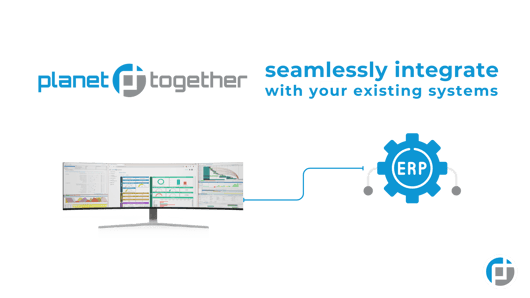
Rethinking Operations: How Flexible Packaging and Sustainable Choices Are Reshaping the Packaging and Containers Industry
In packaging and containers manufacturing, Operations Directors face unprecedented pressure to adapt to rapidly shifting market dynamics. Among the most pressing demands are calls for more sustainable packaging materials and increased operational flexibility. Consumers, regulators, and business partners alike are pushing for environmentally responsible practices—while expecting manufacturers to deliver with speed, precision, and efficiency.
Flexible packaging has emerged as a game-changing solution in this context. Lightweight, versatile, and increasingly recyclable, flexible materials offer manufacturers an opportunity to reduce environmental impact without compromising performance. However, adopting flexible packaging on a large scale comes with operational complexities that require strategic planning, efficient scheduling, and advanced system integration.
This is where technologies like PlanetTogether Advanced Planning and Scheduling (APS) integrated with ERP platforms such as SAP, Oracle, Microsoft Dynamics, Kinaxis, or Aveva play a transformative role. With these tools, Operations Directors can meet the dual challenge of sustainability and agility head-on—enhancing resource utilization, improving throughput, and reducing waste across the supply chain.
The Rise of Flexible Packaging
Flexible packaging refers to materials such as pouches, films, bags, and wraps that can easily change shape. These materials are typically used for food and beverage, pharmaceuticals, cosmetics, and household goods. Their lightweight and compact properties result in lower transportation costs and reduced carbon emissions compared to rigid packaging.
Key drivers of flexible packaging adoption include:
Sustainability: Reduced material usage, less waste, and lower energy requirements in production.
Consumer Convenience: Easy-to-use, resealable, and lightweight options for busy lifestyles.
Product Protection: Extended shelf life and improved barrier properties for perishable goods.
Cost Efficiency: Reduced logistics and storage costs due to minimized weight and volume.
Despite these benefits, transitioning to flexible packaging can challenge existing production processes. Changes in machinery settings, packaging formats, material compatibility, and production scheduling require a high level of operational coordination and foresight.
The Operational Complexities of Sustainable Packaging
While sustainable and flexible packaging offers immense potential, the operational implications for a manufacturing facility can be complex:
Production Variability: Flexible materials often behave differently on packaging lines compared to rigid alternatives, requiring more precise settings and maintenance.
Inventory Management: Introducing a new range of materials means increased SKUs, making inventory tracking more complex.
Supplier Coordination: Sourcing bio-based or recyclable materials may involve new suppliers, lead times, and quality checks.
Regulatory Compliance: Ensuring materials meet evolving environmental regulations across markets demands rigorous documentation and traceability.
Operations Directors must find a way to balance these variables without disrupting throughput, quality, or profitability. This is where advanced planning systems become critical.

Integrating APS and ERP: A Blueprint for Sustainable Success
To manage the transition toward flexible and sustainable packaging effectively, leading manufacturers are investing in Advanced Planning and Scheduling (APS) tools like PlanetTogether, seamlessly integrated with their core ERP systems—SAP, Oracle, Microsoft Dynamics, Kinaxis, or Aveva.
This integration enables a new level of operational agility and insight:
Real-Time Visibility
PlanetTogether provides real-time visibility across all production operations. When integrated with ERP systems, this ensures synchronized updates on inventory levels, production schedules, and raw material availability. Operations Directors can immediately assess the impact of switching to new materials or introducing a sustainable product line.
Dynamic Scheduling
Flexible packaging formats often require adjustments to production lines, leading to potential downtime if not scheduled properly. PlanetTogether APS allows for dynamic scheduling that takes into account equipment constraints, material changes, labor availability, and customer deadlines—minimizing idle time and increasing output.
Scenario Modeling
With sustainability goals in mind, manufacturers can use APS to model different packaging strategies, such as switching from multilayer plastic to compostable films. By running "what-if" scenarios, Operations Directors can evaluate trade-offs in cost, energy consumption, and cycle time before committing to large-scale changes.
Supply Chain Coordination
When integrated with platforms like Kinaxis or Aveva, PlanetTogether can help coordinate upstream and downstream supply chain activities, improving collaboration with packaging suppliers and distribution partners. This ensures that sustainable material choices do not lead to supply bottlenecks or delayed shipments.
Sustainability Metrics and Reporting
Regulatory and consumer demand for sustainability data continues to grow. Integration between PlanetTogether and systems like Oracle or SAP can streamline sustainability reporting by automatically capturing relevant KPIs—such as material usage, energy consumption, and CO2 emissions—directly from production schedules.
Looking Ahead: Sustainability as a Competitive Edge
Flexible packaging is no longer a trend—it’s becoming a standard. And sustainability is not just about compliance; it’s a business strategy. Operations Directors who embrace this dual transformation are positioning their organizations for long-term success.
Key strategies to consider moving forward:
Prioritize Integration: Ensure your APS, MES, and ERP systems are fully integrated. Disconnected systems create blind spots that hinder agile decision-making.
Invest in Training: Equip teams with the skills needed to manage more complex scheduling scenarios, especially those involving sustainable materials.
Collaborate with R&D: Work closely with research and development to assess packaging innovations early, enabling better planning and smoother transitions.
Adopt a Circular Mindset: Consider the entire lifecycle of your packaging—materials sourcing, use, disposal, and reuse. Use APS tools to support circular economy models through reverse logistics and reprocessing capacity planning.
The move to flexible and sustainable packaging presents both an opportunity and a challenge for Operations Directors in the packaging and containers industry. Success lies in the ability to adapt operations without sacrificing efficiency, cost control, or customer service.
By leveraging PlanetTogether APS integrated with robust ERP systems like SAP, Oracle, Microsoft, Kinaxis, or Aveva, manufacturers can make data-driven decisions that align production with sustainability goals. The result is a smarter, greener, and more resilient operation—ready for whatever the future holds.
Are you ready to take your manufacturing operations to the next level? Contact us today to learn more about how PlanetTogether can help you achieve your goals and drive success in your industry.

